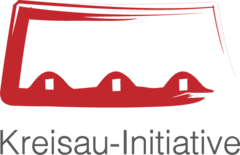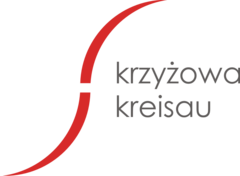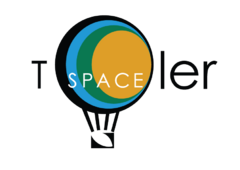Contributing organisations
Kreisau-Initiative e. V., Germany (project leader)
The Kreisau-Initiative e. V. provides a space for education and encounter in which young people in particular can gain the skills they need to shape a European society that is characterized by democracy, solidarity and sustainability. This space for education and encounter takes the form of international inclusive youth exchange programmes as well as training courses for educators and people who work with youngsters. The Initiative’s approach to education for young people is characterized by reference to the participants’ world, a hands-on orientation, learning by experiencing, and engagement with current political and social questions. At the core of its approach to adult education lie learning and improving skills, exchanging ideas, and networking. Contemporary history and human rights, inclusion and social-ecological transformation are central themes in its work. The Kreisau-Initiative e. V. was founded in 1989 by people from both sides of the then still divided Berlin with the purpose of supporting the set-up and maintenance of an international youth meeting centre in Krzyżowa, Poland. Today, the centre is managed by the Krzyżowa Foundation for Mutual Understanding in Europe, and both organizations cooperate closely – nearly 80% of the Initiative’s events take place in Krzyżowa. In addition to that, the Kreisau-Initiative e. V. is a leading participant in a network of partner organizations from over 20 European countries and also serves as a partner to the European Commission in implementing the EU Youth Strategy. This is indicative of the educational work of the Kreisau-Initiative e. V., combining a European character with a focus on Polish-German cooperation.
Krzyżowa Foundation for Mutual Understanding in Europe, Poland
The Krzyżowa Foundation for Mutual Understanding in Europe is a politically independent non-profit organization, whose aim is to support the peaceful and tolerant coexistence of nations, social groups and individuals in Europe. In order to do this, we bring together people from many nations so that they may talk and share their views of the world.
History, treated as a starting point for reflection on the present day, plays a central role in the activities of the Krzyżowa Foundation. The Foundation conducts numerous seminars, training sessions and conferences on historical topics, focussing especially on resistance and opposition movements in the 20th century, the history of cross-border relations and historical memory in Poland and Europe.
The most important element in the Krzyżowa Foundation’s remit is the work it does for and with young people as a part of the International Youth Meeting Centre, the largest non-formal education centre in Central and Eastern Europe.
The Krzyżowa Foundation for Mutual Understanding in Europe was founded 30 years ago, a few months after the Polish-German Reconciliation Mass had been celebrated. On 12 November 1989, a holy Mass had been held in Krzyżowa attended by more than 5000 people, among them the heads of the Polish and German governments, Tadeusz Mazowiecki and Helmut Kohl. The Foundation’s founders were Poles and Germans, people of various confessions and beliefs, who wanted to overcome the divisions that had plagued the European continent since WWII. It was important for them to create a public space in which European relations could develop based on mutual respect, dialogue and a readiness to seek reconciliation.
The foundation is based in the village of Krzyżowa in Lower Silesia, near Wrocław, on an estate that dates back to the 19th century. Until 1945, the estate was owned by the von Moltke family; after 1945, it was turned into a state-run farm. During the Second World War, the German resistance group Der Kreisauer Kreis (The Kreisau Circle – referring to the German name of the village, Kreisau) met in Krzyżowa. It was founded and led by Helmuth James von Moltke and Peter Yorck von Wartenburg. The group members were convinced that National Socialism, being based on violence within Germany and towards the rest of the world, could not last for long. Therefore, they worked on plans for a post-war democratic Germany, based on the rule of law, in a free Europe. A third of its members were killed after the failure of the von Stauffenberg plot on 20 July 1944.
website of the Krzyżowa Foundation for Mutual Understanding in Europe, Poland
Post Bellum, Czech Republic
Post Bellum is a non-profit organization established in 2001 that seeks out and records witnesses’ memories of historical events from throughout the 20th century. The organization was founded by a group of journalists and historians from the Czech Republic who kept meeting at press conferences and anniversary commemorations. They believed that witnesses should have the opportunity to tell their stories and that these stories should be accessible to everyone. Post Bellum was created from this vision. Post Bellum’s core project is the Memory of Nations, a wide oral-history collection of testimonies from people who experienced the totalitarian eras of the 20th century, as well as photographs, newspapers and various other historical records. The collection comprises thousands of witness stories and is accessible to the public through an online database. The online collection contains the stories of veterans from World War II, Holocaust survivors, resistance fighters, political prisoners, nonconformists, contemporary war veterans and ethnic minorities. It also includes the experiences of those who were on the repressive side of the totalitarian regimes – State Security, the KGB, and more. Post Bellum also coordinates educational projects for both children and adults in addition to preparing exhibitions, publishing books, organizing social events and encouraging students to take an interest in modern history and their own roots.
Tolerspace, Ukraine
The “Tolerspace” education centre in Kyiv is a Ukrainian non-governmental organization. Since its establishment in 2013, it has been providing non-formal education for adults and teenagers in the field of tolerance and human rights, as well as training for teachers in formal and non-formal settings. It also develops and implements its own educational methods and adapts materials drawing on educational experience from around the world. The education centre places particular emphasis on the following fields: anti-discrimination work; the promotion of consciously proactive attitudes; the human dimension of history; the promotion of diversity; dismantling prejudice.
The Tolerspace team works with the following formats:
workshops and courses for teachers, material relating to the topic of education during times of war, trauma-sensitive education;
psychological support groups for teachers, child psychologists and journalists; • a discussion club and seminars for young people;
a TikTok channel for young people, offering education-related content dealing with themes such as dismantling stereotypes, promoting diversity and respecting human dignity;
a holiday camp for young people;
publishing methodological manuals for teachers and comics for young people.
The purpose of the education centre is to strengthen the resilience of Ukrainian society.



